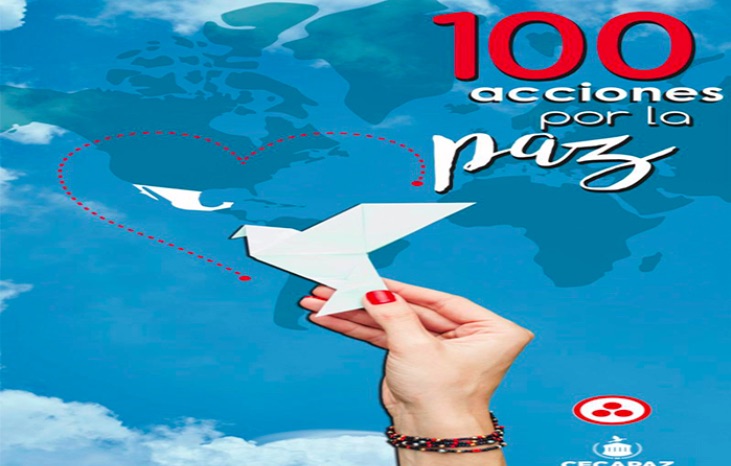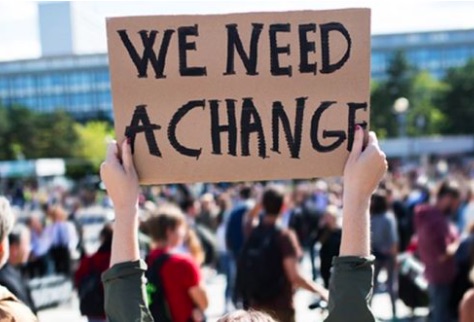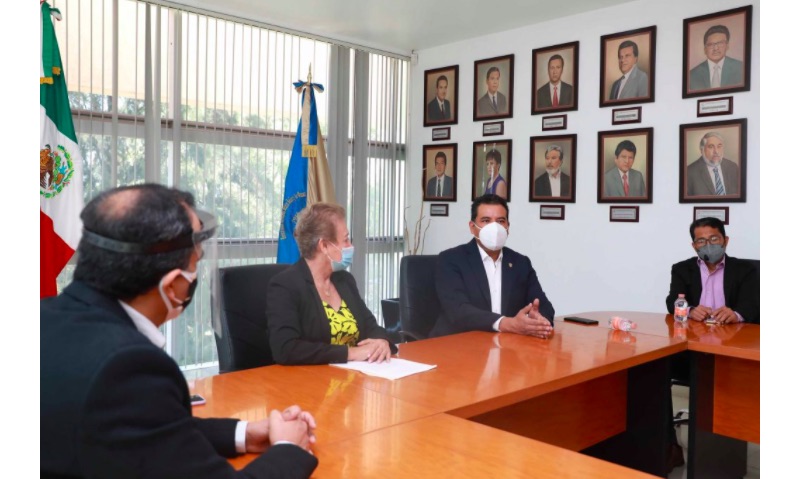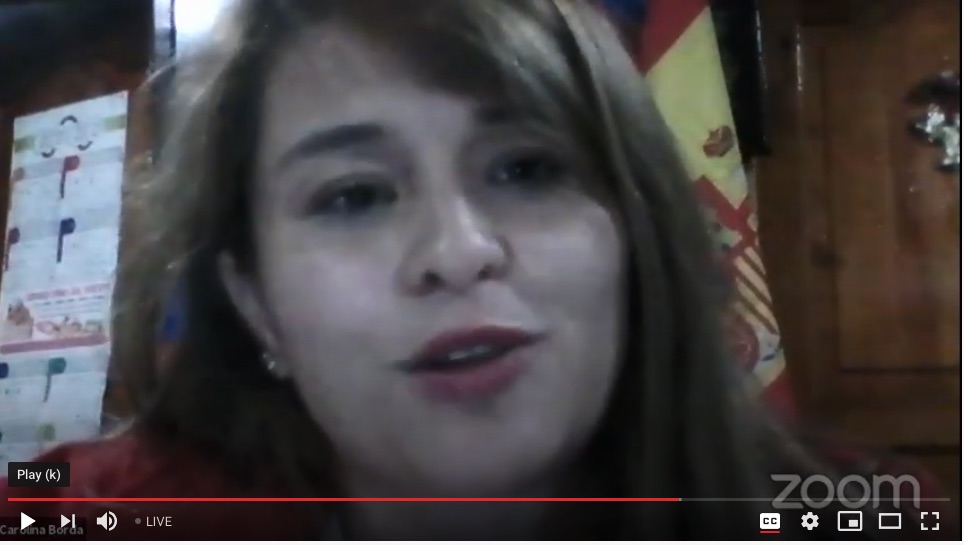DISARMAMENT & SECURITY .
A report from the Stockholm International Peace Research Institute
Sales of arms and military services by the sector’s largest 25 companies totalled US$361 billion in 2019, 8.5 per cent more than in 2018. The largest companies have a geographically diverse international presence. This is according to new data released today [December 7] by the Stockholm International Peace Research Institute (SIPRI).
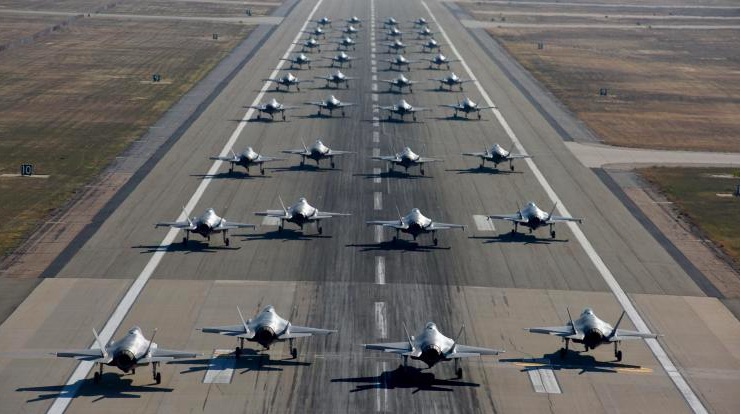
Lockheed Martin F-35 Lightning II. Photo: Flickr/Robert Sullivan
New data from SIPRI’s Arms Industry Database shows that arms sales by the world’s 25 largest arms-producing and military services companies (arms companies) totalled US$361 billion in 2019. This represents an 8.5 per cent increase in real terms over the arms sales of the top 25 arms companies in 2018.
US companies still dominate, Middle East represented in top 25 for the first time
In 2019 the top five arms companies were all based in the United States: Lockheed Martin, Boeing, Northrop Grumman, Raytheon and General Dynamics. These five together registered $166 billion in annual arms sales. In total, 12 US companies appear in the top 25 for 2019, accounting for 61 per cent of the combined arms sales of the top 25.
For the first time, a Middle Eastern firm appears in the top 25 ranking. EDGE, based in the United Arab Emirates (UAE), was created in 2019 from the merger of more than 25 smaller companies. It ranks at number 22 and accounted for 1.3 per cent of total arms sales of the top 25.
‘EDGE is a good illustration of how the combination of high national demand for military products and services with a desire to become less dependent on foreign suppliers is driving the growth of arms companies in the Middle East,’ said Pieter Wezeman, Senior Researcher with the SIPRI Arms and Military Expenditure Programme.
Another newcomer in the top 25 in 2019 was L3Harris Technologies (ranked 10th). It was created through the merger of two US companies that were both in the top 25 in 2018: Harris Corporation and L3 Technologies.
Chinese arms companies’ sales increase, Russian companies’ sales fall
The top 25 also includes four Chinese companies. Three are in the top 10: Aviation Industry Corporation of China (AVIC; ranked 6th), China Electronics Technology Group Corporation (CETC; ranked 8th) and China North Industries Group Corporation (NORINCO; ranked 9th). The combined revenue of the four Chinese companies in the top 25—which also include China South Industries Group Corporation (CSGC; ranked 24th)—grew by 4.8 per cent between 2018 and 2019.
Reflecting on the rise in the arms sales of Chinese companies, SIPRI Senior Researcher Nan Tian said: ‘Chinese arms companies are benefiting from military modernization programmes for the People’s Liberation Army.’
(Article continued on the right column)
(Click here for a version of this article in French or here for a version in Spanish.)
Does military spending lead to economic decline and collapse?
(Article continued from the left column)
The revenues of the two Russian companies in the top 25—Almaz-Antey and United Shipbuilding—both decreased between 2018 and 2019, by a combined total of $634 million. A third Russian company, United Aircraft, lost $1.3 billion in sales and dropped out of the top 25 in 2019.
Alexandra Kuimova, Researcher at SIPRI, said: ‘Domestic competition and reduced government spending on fleet modernization were two of the main challenges for United Shipbuilding in 2019.’
Other notable developments and trends in the top 25
After the USA, China accounted for the second largest share of 2019 arms sales by the top 25 arms companies, at 16 per cent. The six West European companies together accounted for 18 per cent. The two Russian companies in the ranking accounted for 3.9 per cent.
Nineteen of the top 25 arms companies increased their arms sales in 2019 compared with 2018. The largest absolute increase in arms revenue was registered by Lockheed Martin: $5.1 billion, equivalent to 11 per cent in real terms.
The largest percentage increase in annual arms sales—105 per cent—was reported by French producer Dassault Aviation Group. ‘A sharp rise in export deliveries of Rafale combat aircraft pushed Dassault Aviation into the top 25 arms companies for the first time,’ says Lucie Béraud-Sudreau, Director of the SIPRI Arms and Military Expenditure Programme.
Mapping shows Global South becoming integrated into global arms industry
The report also looks at the international presence of the 15 largest arms companies in 2019. These companies are present in a total of 49 countries, through majority-owned subsidiaries, joint ventures and research facilities.
With a global presence spanning 24 countries each, Thales and Airbus are the two most internationalized companies—followed closely by Boeing (21 countries), Leonardo (21 countries) and Lockheed Martin (19 countries).
The United Kingdom, Australia, the USA, Canada and Germany host the largest numbers of these foreign entities. Outside the arms industry hubs of North America and Western Europe, the largest numbers of entities of foreign companies are hosted by Australia (38), Saudi Arabia (24), India (13), Singapore (11), the UAE (11) and Brazil (10).
Alexandra Marksteiner of the SIPRI Arms and Military Expenditure Programme said: ‘There are many reasons why arms companies might want to establish themselves overseas, including better access to growing markets, collaborative weapon programmes, or policies in the host countries tying arms purchases to technology transfers.’
Of the 49 countries hosting foreign entities of the top 15 arms companies, 17 are in low- and middle-income countries. ‘Countries in the Global South seeking to jump-start their arms production programmes have welcomed foreign arms companies as a means to benefit from technology transfers,’ said Diego Lopes da Silva, Researcher at SIPRI.
Siemon Wezeman, Senior Researcher at SIPRI, said: ‘The Chinese and Russian arms companies in the top 15 have only a limited international presence. Sanctions against Russian firms and government-mandated limits on acquisitions by Chinese firms seem to have played a role in constraining their global presence.’


